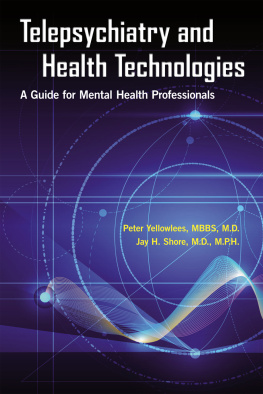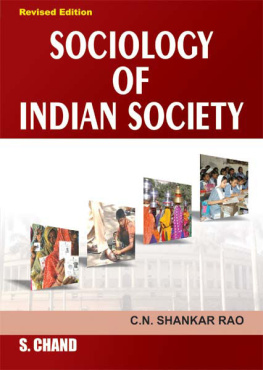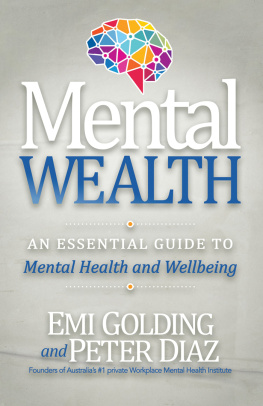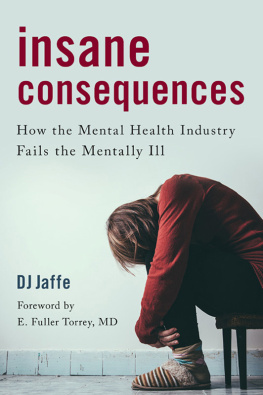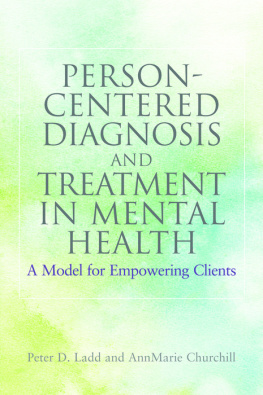
Insane Society: A Sociology of Mental Health
This book critiques the connection between Western society and madness, scrutinizing if and how societal insanity affects the cause, construction, and consequence of madness.
Looking beyond the affected individual to their social, political, economic, ecological, and cultural context, this book examines whether society itself, and its institutions, divisions, practices, and values, is mad. That societys insanity is relevant to the sanity and insanity of its citizens has been argued by Fromm in The Sane Society, but also by a host of sociologists, social thinkers, epidemiologists and biologists. This book builds on classic texts such as Foucaults History of Madness, Sculls Marxist-oriented works and more recent publications which have arisen from a range of socio-political and patient-orientated movements. Chapters in this book draw on biology, psychology, sociological and anthropological thinking that argues that where madness is concerned, society matters.
Providing an extended case study of how the sociological imagination should operate in a contemporary setting, this book draws on genetics, neuro-science, cognitive science, radical psychology, and evolutionary psychology/psychiatry. It is an important read for students and scholars of sociology, anthropology, social policy, criminology, health, and mental health.
Peter Morrall has an academic background in medical/health sociology. He is currently Visiting Associate Professor in Health Sociology, University of Leeds, and Tutor at the Centre for Lifelong Learning, University of York, UK. Morrall has been steeped in the field of madness for decades. He has worked in large mental hospitals and small psychiatric units, and has taught, researched, and written about madness (including madness and murder, the trouble with psychotherapy, and the insanity of society). Morralls other interests beyond madness are music and motorcycling.
Routledge Studies in the Sociology of Health and Illness
Public Health, Personal Health and Pills
Drug entanglements and pharmaceuticalised governance
Kevin Dew
Dementia as Social Experience
Valuing Life and Care
Edited by Gaynor Macdonald and Jane Mears
Injecting Bodies in More-than-Human Worlds
Mediating Drug-Body-World Relations
Fay Dennis
Contested Illness in Context
An Interdisciplinary Study in Disease Definition
Harry Quinn Schone
Banking on Milk
An Ethnography of Donor Human Milk Relations
Tanya Cassidy and Fiona Dykes
Ageing, the Body and the Gender Regime
Health, Illness and Disease Across the Life Course
Edited by Susan Pickard and Jude Robinson
Insane Society: A Sociology of Mental Health
Peter Morrall
Risk and Substance Use
Framing Dangerous People and Dangerous Places
Edited by Susanne MacGregor and Betsy Thom
For more information about this series, please visit: https://www.routledge.com/Routledge-Studies-in-the-Sociology-of-Health-and-Illness/book-series/RSSHI
First published 2020
by Routledge
2 Park Square, Milton Park, Abingdon, Oxon OX14 4RN
and by Routledge
52 Vanderbilt Avenue, New York, NY 10017
Routledge is an imprint of the Taylor & Francis Group, an informa business
2020 Peter Morrall
The right of Peter Morrall to be identified as author of this work has been asserted by him in accordance with sections 77 and 78 of the Copyright, Designs and Patents Act 1988.
All rights reserved. No part of this book may be reprinted or reproduced or utilised in any form or by any electronic, mechanical, or other means, now known or hereafter invented, including photocopying and recording, or in any information storage or retrieval system, without permission in writing from the publishers.
Trademark notice: Product or corporate names may be trademarks or registered trademarks, and are used only for identification and explanation without intent to infringe.
British Library Cataloguing-in-Publication Data
A catalogue record for this book is available from the British Library
Library of Congress Cataloging-in-Publication Data
A catalog record has been requested for this book
ISBN: 978-1-138-57607-0 (hbk)
ISBN: 978-1-351-27116-5 (ebk)
Imagine you (the reader) have an appointment with your medical practitioner concerning a difficulty you are having breathing, and a tendency to fall asleep particularly after meals. The medical practitioner notes that you drink far more units of alcohol than the recommended limit, take exercise only when its unavoidable, have a very sweet tooth and eat mainly convenience foods, and you are overweight. When questioned about these lifestyle habits of yours you explain that you are also stressed and frequently feel down. Moreover, when particularly frazzled and sad you feel that your family, friends, and work colleagues not only dont appreciate how you are feeling but you suspect many of them are also out to get you. Alcohol, cigarettes, laziness, sweets, cake, and highly processed food are attempts, you claim, to de-stress.
Following a few simple physical tests, your medical practitioner diagnoses early-onset asthma and type 2 diabetes, and prescribes anti-inflammatory and hypoglycaemic drugs as well as offering advice about a healthier diet, exercise, and alcohol consumption. Following a few simple psychological tests, she also diagnoses anxiety and depression whilst reserving a diagnosis of psychosis. The good doctor, and for sure she is well-qualified and is trying her best to help you, prescribes anti-anxiety and anti-depression drugs as well as recommending a course in cognitive therapy, basic relaxation techniques, and joining a gym. These standard medical interventions seem to be well researched and effective. Asthma and diabetes can be stabilised, misery managed, apprehension assuaged, and (if it should be necessary in your case) paranoia quelled. More sophisticated testing which examines in minute detail the genetic, biochemical, and anatomical make-up of every bit of your body may soon become de rigour in medical practice. This may involve identifying the molecular substance of every cell of every organ, including the brain and its associated somatic systems. What could then be offered as medical interventions are genetically-specific pharmaceuticals, precise gene-editing procedures, nanochip insertions, robotic attachments, and neurologically-founded psychotherapy. Within the next hundred years such developments, according to historian Yuval Harari (2017), offer the possibility of homo-sapiens overcoming morbidity and mortality, thereby transforming into homo-Deus. That is, evolving from the animalistic to the godly.
What is not offered in medical practice, and there is no indication that it will ever be offered, is the testing and treatment of social disorder. Neither your physical nor your psychological condition is assessed for the effects of society. There may be an acknowledgement, particularly if you are referred to a specialist, of connections between your lifestyle habits, sorrow, unease and suspiciousness, and localised situation. But, medical tools equivalent to those which assess heart rate, blood pressure, extent of sweating, hormone and endocrine levels, and genomic makeup, are not employed. Medical scrutiny is already narrow and, aided by truly incredible technological visualisation and biological excavation, will become more and more focused on the infinitesimal. The star aspiration of natural science is to unify the miniscule with the massive, the subatomic with the cosmos. Medicine is not staring at the stars.



